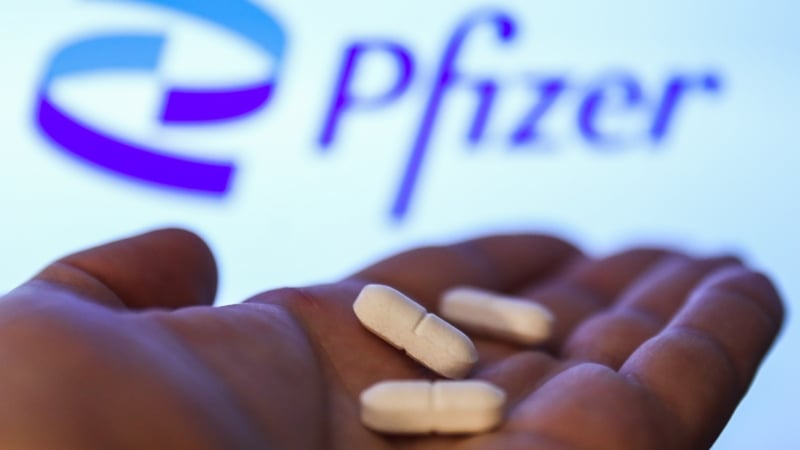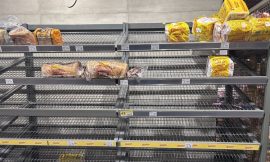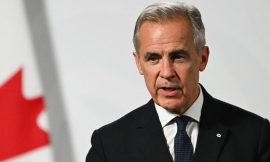Pfizer said today it would generate $1.7 billion more in savings from cost-cutting to its manufacturing and research operations and reported lower first-quarter revenue due to declining sales of its Paxlovid Covid-19 treatment.
The company reaffirmed its full-year forecast and announced measures to mitigate the impact of potential tariffs on pharmaceuticals by the Trump administration, including possibly shifting some production to the US.
While the rates and timing of tariffs on the pharma sector are unclear, analysts expect that companies will have to absorb any near-term costs if they are imposed.
Washington has launched an investigation into the industry, laying the groundwork for possible levies.
Pfizer had an Irish workforce of about 5,000 across four locations based in Cork, Dublin and Kildare.
Last month, Pfizer CEO Albert Bourla said the company has the capability to move overseas manufacturing to its existing US plants “if something happens.”
Pfizer has 10 manufacturing sites and two distribution centers in the US, employing nearly 10,000 people.
“While we continue to engage and plan for contingencies, we’re focusing day-to-day on what we can do to move our business forward,” Bourla said in prepared remarks today.
Potential tariffs could add to existing pressure for Pfizer. Investors have been pushing the company to bring new drugs to market that could make up for potential revenue lost from some top-selling medicines nearing the end of patent protection.
Even the drugs that outperformed Wall Street expectations this quarter face headwinds.
Sales of its heart disease drug, sold under the brand names Vyndaqel and Vyndamax, were $1.49 billion, above estimates of $1.29 billion. But the company said it is already seeing the impact of new competition, which it expects to continue through the year.
Pfizer’s vaccine business could also face greater regulatory scrutiny under the new Health Secretary Robert F Kennedy Jr, a longtime vaccine skeptic.
Covid vaccine Comirnaty, which Pfizer makes with German partner BioNTech, brought in sales of $565m. Analysts were expecting sales of $331.7m for the shot.
But sales of Covid antiviral Paxlovid were $491m, well short of analysts’ already diminished expectations of $794.3m, according to LSEG data.

Analysts had significantly cut their expectations for the two-drug treatment in recent weeks due to a relatively small winter wave of Covid-19 in the US.
The company provided an update on its cost-cutting programmes, saying it now expects about $7.7 billion in savings by the end of 2027.
On an adjusted basis, Pfizer earned 92 cents per share in the first quarter, compared with analysts’ expectations of 66 cents per share, helped by cost cuts and a lower tax rate.
Despite the earnings beat, Pfizer is still forecasting a full-year adjusted profit of $2.80 to $3 per share on revenue of $61 billion to $64 billion .
Revenue in the quarter fell 8% from a year ago to $13.72 billion and missed analysts’ expectations of $13.91 billion.




